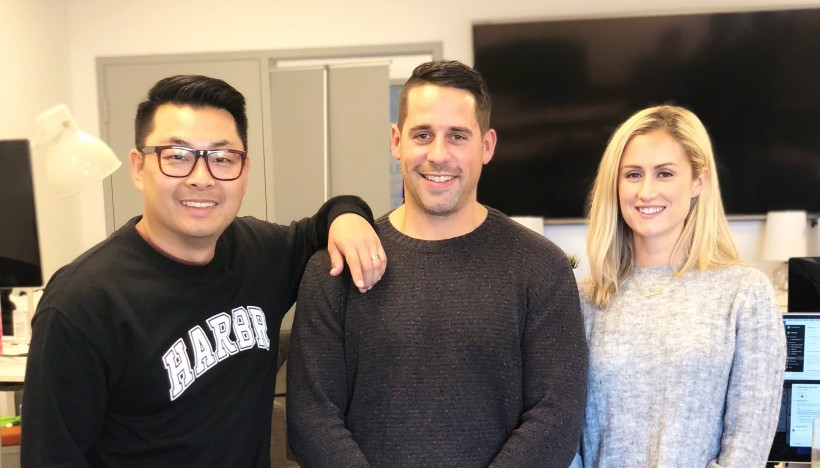Harbr, the Halifax-based maker of project management software for the construction industry, is testing a fintech service that CEO Dave Kim says will help address systemic problems with late payments in the sector.
The company’s main offering is a communications platform that lets construction workers use text messages to send real-time updates about their work to a central database.
The system used to be app-based, but was revamped earlier this year to use text-messaging instead, in a bid to be friendlier to people who may dislike using apps.
The fintech component automates the billing process for contractors, which Kim said in an interview could help relieve an industry-wide bottleneck severe enough to prompt Canada’s federal and provincial governments to pass legislation mandating builders pay their tradespeople more quickly.
To help develop the fintech product, Harbr is one of eight startups participating in the inaugural cohort of Station Fintech Montréal, which is an accelerator created by venture capital fund Highline Beta and industry group Finance Montréal.
“We currently live in a world where the trades have a hard time (receiving) prompt payments,” he said. “There's so many different levels of businesses inside of a construction project, that you're trying to find the common thread for each one of those companies (in order to help fix it).”
When they founded Harbr in 2016, Kim and his business partners, Jeff and Ashley Kielbratowski, originally conceived of it as an AI platform that would predict logistics-related work delays on construction sites.
The option for developers to track progress by having their employees send text updates to an automated database was added last year in response to what Kim dubs “app fatigue.”
The billing software, which uses data from the texting system to generate detailed invoices that are backed up by real-time data logging, is currently in closed beta.
On most construction projects, contractors bill the developer once a month for their completed work. But the invoices are subject to an approval process that usually involves a site visit by the developer to confirm that the invoice is accurate. That creates two opportunities for payment delays: scheduling problems and disagreements about whether specific jobs have been done.
Kim said it can take well over a month for contractors to be paid for the tasks they perform. And because many contractors self-finance their work in the early stages of projects or take out private loans with unfavourable terms, slow payment can harm the financial viability of many contractors.
Early customer feedback suggests Harbr’s fintech product will prove popular with contractors because it has the potential to reduce delays. And developers – which are the organizations that actually pay for Harbr – now face regulatory pressure to speed up their payment processes.
“The efficiency of generating an invoice or consolidating invoices, that's not really the problem,” said Kim of the pressures the construction sector faces. “There's a lot of software that does that today. What the problem is, is providing the ‘line of sight’ to be able to prove that an invoice is, in fact, a real representation of the budget and the progress to date.”
So far, Kim’s staff includes 10 people working remotely across Canada, up from the three co-founders and two part-time software engineers a year ago. He expects to hire a flurry of new employees as the billing platform rolls out.
What remains unclear, though, is exactly how many new people will join the team, since Kim is focused first on recruiting a handful of senior executives, who will play a role in deciding how many staff they need.
A raise could also be on the horizon, following on a $1.75 million seed round in 2018. But he said Harbr is currently well-financed, and any investment round would need to focus heavily on strategic investors.
“It’s still quite early,” he said. “We’re speaking with those firms that have a very good understanding of the space... We’re not in a rush. We want to make sure that we find the right partners because the possibilities are massive, and that can also be a distraction.”










